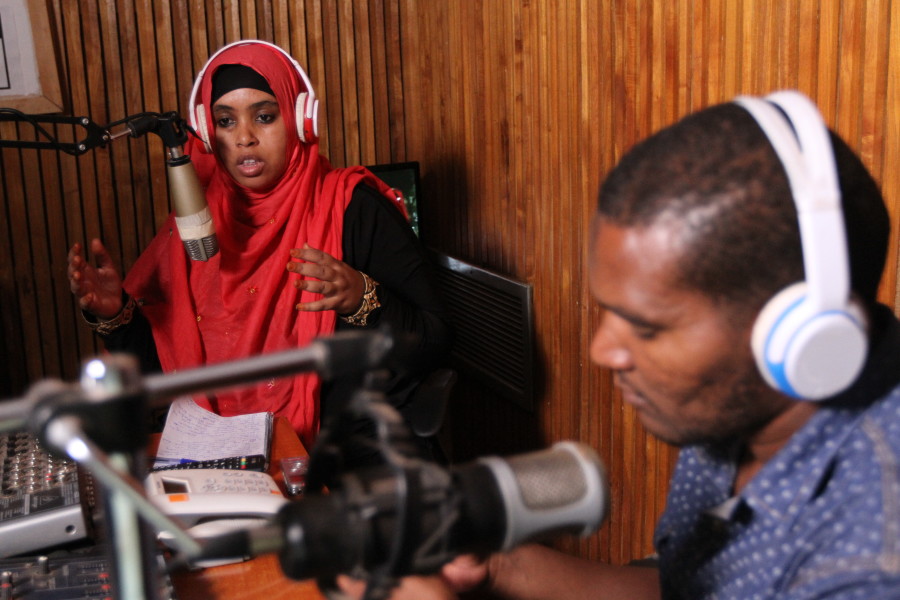Growing up in the dusty and rugged Isiolo plains, Halima Dida experienced firsthand conflict associated with the scramble for dwindling grazing areas, cattle theft and animosity between clans and ethnic groups living in the larger Isiolo County.
According to Halima, these conflicts, which often escalate during electioneering periods, have negatively impacted on community’s growth more so, the lives of girls and women from the pastoralist communities.
Over the years, Isiolo stood out as one of the Counties that were greatly affected by the vicious wave of armed conflict, including banditry, always witnessed in the run up to elections as communities scramble for the elective posts. The repeated wave of violence pitting nomadic communities has scared away investors and tourists who would have otherwise enjoyed the scenic and expansive Isiolo county-side, including the game sanctuaries and conservancies.
Halima, who doubles up as the chairperson of Women of Faith `Group and a member of the Inter- Religious Council of Kenya, recalls a cattle rustling incident between Somali and Borana communities, which left many families maimed and lives lost. Having experienced all that, her urge for peace grew bigger by the day. Pestered with this unpleasant situation, she resolved to find solutions to what ails her community.
“During such conflicts women are exposed to gender related violence and some even lose their husbands in the process. The effects of these conflicts are also felt by the child-headed families orphaned in the process,” says Halima.
Today, she stands out as a benevolent peace champion who is using community radio to stir conversations on issues that could otherwise escalate to large scale skirmishes if not addressed.
“I have been doing so many radio talk shows in Borana and Swahili languages. I realized my community relates more with radio stations that broadcast in local languages than the national stations”, she says.
“Beyond the normal peace dialogue, we needed to have wider conversations around the prevention and response to electoral violence at the grassroots hence my goal of reaching a wider audience”, she added.
Looking back at the electoral campaign environment in Isiolo and its envrions, Halima regrets of the challenges that still underpins women’s participation in elections and peace building processes.
“Being a pastoralist community, our culture does not take into account women voices as that of their male counterparts. We still have to fight for our space,” she explains.
That notwithstanding, the mother of three is happy that the work she has done in the community has yielded fruits. It is the first time that a woman has been elected as a senator among the ‘conservative’ pastoralist Borana community.
“It is a good direction but we still have a big gap in appreciating the important role women play in a democratic environment,” she says while noting that women who vie for political positions are still marginalized and viewed as outcasts going against culture and religious teachings. In such communities, women are also missing in the “negotiated democracy” table where sub clans, clans and ethnic communities elders meet to share power (read elective/appointive positions).
“Our community believes that women should not venture into politics. There is need to sustain momentum in creating awareness on such issues at the grassroots,” Halima explains.
She however notes that “the conversations on radio have been very interactive and effective. You can tell the enthusiasm of communities on issues that affect their livelihoods and peaceful co-existence from the way they ask questions and give feedback on issues relating to elections,” she narrates. Women also discuss the radio conversations during their ‘chamas’ (local women gatherings), meaning that the radio programmes have touched their lives.
Halima is a member of the Isiolo County Conflict Management Panel (CMP); a consortium of peace actors initiated by Act! under the auspice of the Electoral Conflict and Violence Mitigation program to mediate on electoral conflict. As a CMP, she underwent training on conflict mapping and management.
“Working as a CMP has made a great difference. We have never had such a consortium of peace actors. In the past elections, we experienced lot of conflict in the pre and post-election periods. In 2017, we made gains in our community engagements; the county was largely peaceful,” she notes.























